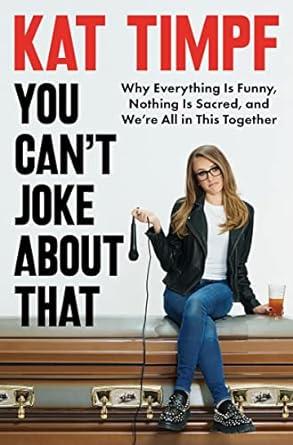Our state's senior Senator goes there, as reported by NHJournal: Shaheen Pressures Israel to 'Pause' Military Operations Against Hamas.
U.S. Sen. Jeanne Shaheen has joined the chorus of Democrats calling for Israel to “pause” its military action against Hamas and conduct “a short-term cessation of hostilities” so more aid can be delivered to Gaza.
It is a call to action that supporters of Israel say would benefit the terrorists and hinder Israel’s efforts to eliminate Hamas as a future threat.
Any "pause" would give Hamas a chance to regroup and fortify. And would likely lead to more Israeli dead, both military and civilian, young and old.
It's the epitome of irresponsibility to "pressure" Israel from a comfy office in Washington, D.C., where you're safely remote from the consequences of your "pressure". Nobody's firing rockets into your town, Jeanne. Maybe you'd feel differently if they were?
Also of note:
-
Surely you're joshing! Well, at least New Hampshire doesn't have Josh Hawley as a senator. That would be pretty embarrassing for the LFOD state. His latest antic, as described by Jeff Jacoby: A GOP senator joins the anti-Citizens United chorus.
DEMOCRATS AND liberals freaked out 13 years ago when the Supreme Court, in Citizens United v. Federal Election Commission, ruled that corporations and labor unions had a right to express their views on candidates and issues before an election. The decision, which struck down much of the McCain-Feingold campaign finance law, meant that businesses and nonprofit organizations were once again free to spend their own money to promote or oppose candidates and ballot measures, so long as they didn't coordinate with any political campaign.
It was hardly an earth-shattering change. After all, newspapers, magazines, and TV networks routinely endorse candidates and take stands on proposed legislation. If media corporations have a robust First Amendment right to weigh in during political campaigns, why shouldn't every kind of organization?
Yet the reaction on the left was apoplectic. MSNBC's Keith Olbermann called the decision "our Dred Scott" and Senator Bernie Sanders excoriated it as "one of the worst decisions ever made by a Supreme Court in the history of our country." On its editorial page, The New York Times denounced the "disastrous" ruling as a "blow to democracy" that would "thrust politics back to the robber-baron era of the 19th century." The Nation wailed that Big Business was now free to "dump money from the corporate treasury directly into the pockets of the candidates." Then-president Barack Obama pronounced Citizens United "more devastating to the public interest" than anything he could think of.
Ah, but anti-First Amendment activity isn't just for left-wingers any more:
On Tuesday, Missouri Senator Josh Hawley introduced a bill intended, in his words, "to get corporate money out of American politics and . . . begin to undo the Supreme Court's 2010 decision in Citizens United." The legislation would prohibit publicly traded companies from spending money on political ads or other election-related communications. It would also bar them from giving money to so-called "Super PACs" — political action committees that can accept unlimited contributions from individuals, unions, and corporations and use the funds to make independent expenditures.
At least most of the honest leftists Jacoby mentioned realized a Constitutional amendment was necessary to strip free speech rights from corporations et al. Hawley's just proposing legislation that would (I hope) be struck down by SCOTUS relatively quickly.
-
Beware the euphemism, my son. The Antiplanner, with jaws that bite and claws that clutch, gives an example: The Case Against Affordable Housing.
Affordable housing projects aren’t making housing more affordable. In fact, says a new study by an MIT economist, construction of new subsidized housing displaces new unsubsidized housing for little net gain in the housing supply. Specifically, the study found, ten new subsidized housing units resulted in eight fewer unsubsidized units.
Between 1950 and 1986, most subsidized housing was built by government agencies. In 1986, a Republican Congress sought to “privatize” the construction of subsidized housing by giving developers tax credits if they promised to rent their housing at below-market prices for 30 years. Today, low-income housing tax credits worth around $10 billion a year are given to the states to hand out to developers. To see how well this program is working, economist Evan Soltas looked at hundreds of projects built with tax credits.
He found that, due to displacement of private construction, affordable housing projects effectively cost taxpayers $1 million for each net new unit of housing. About 44 percent of the benefits of such subsidies go straight to the developers, while the low-income renters get only 31 percent.
They meant well, of course. Using other peoples' money, also of course.
-
In case it isn't obvious yet. Kimberlee Josephson explains Why the FTC Should Stop Going after Amazon.
The global e-commerce market is growing at an impressive rate. Amazon is undoubtedly the sector’s leader with a roughly 37 percent market share, but new competition is always on the rise. Sites like AliExpress (China), Rakuten (Japan), and Flipkart (India) are just a few of the new e-commerce platforms attracting attention and new shoppers.
Temu and Shein, both based in China, are the leading contenders encroaching upon Amazon’s target market, and these firms are finding that Americans will easily switch shopping sites when the price is right. In fact, online traffic has been dropping for Amazon as a substantial number of mobile buyers migrate to other sites. Temu and Shein are now the most downloaded shopping apps worldwide.
Amazon’s biggest battle, however, isn’t with its new rivals. It is with its own government.
It's frustrating that the best outcome here would be a quick ruling that the anti-Amazon lawsuits had no merit, leading to dismissal. At least then it would only be a massive waste of time and money.
-
They are not easy to confuse. Isaac Schick notes an anti-Amazonian oddity: the FTC Recasts Competitors as Consumers.
In classic Lina Khan fashion, the chair of the Federal Trade Commission (FTC) has found a way to sue Amazon over its harm toward consumers while defining the consumers as third-party sellers on Amazon’s marketplace. Third-party sellers are, after all, also Amazon’s competitors, making the case yet another example of the FTC going after firms for competing with rivals, though this time with admitted more creative framing.
Amazon hosts millions of retail sellers on its online marketplace, which features Amazon’s products alongside third-party ones. Since 2007, independent retailers have gone from only 26 percent of total marketplace sales to over 60. Amazon offers opportunities to access its customer base, fulfillment services, and direct-to-consumer shipping, and millions of sellers utilize the marketplace. These independent sellers enjoy access to Amazon’s platform despite competing in some product areas.
Waitaminnit, that was in NHJournal. What's the link to New Hampshire there?
-
Oh, right. Mitchell Scacchi contributes to Granite Grok that it's not just Uncle Stupid's money being wasted, the New Hampshire taxpayers are also kicking in a share. And: The Amazon Lawsuit New Hampshire Joined Is a Mess of Bad Economics.
New Hampshire Attorney General John Formella has joined 16 other state attorneys general in the Federal Trade Commission’s (FTC) lawsuit alleging that “Amazon is a monopolist” that engages in illegal anti-competitive behavior.
If the FTC prevails in this legal case, it appears likely that consumers and small businesses, including the 4,500 small-to-medium-sized New Hampshire businesses that sell on Amazon and the many thousands of Granite Staters who shop online, will be harmed, not helped.
It's tough to understand why Governor Sununu, who at least gives lip service to free markets, shouid let this occur under his administration.
![[duh]](/ps/media/0f0daaa7-fd1c-44e7-857d-0de1e14d4e69_1053x765.jpg)


![[The Blogger and His Dog]](/ps/images/me_with_barney.jpg)



